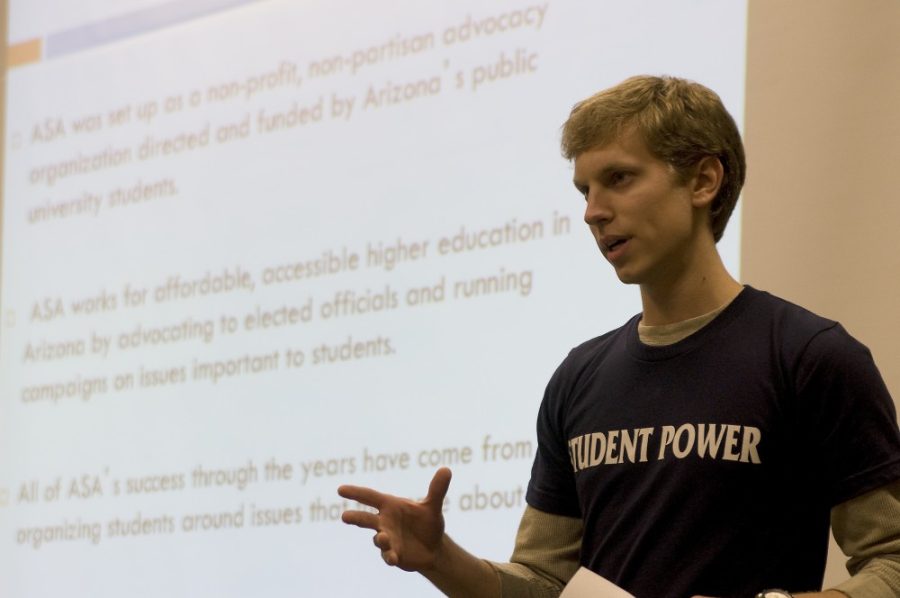During its annual kickoff event on Wednesday, members of the Arizona Students’ Association announced that they aim to register 15,000 students to vote in the upcoming presidential election.
ASA was started as a nonprofit organization in 1974 by the presidents of Arizona State University, Northern Arizona University and the UA.
In the previous presidential election, ASA, a student group that lobbies for higher education, registered 10,000 students to vote. ASA registers students to vote in order for state officials to know that they are being held accountable, said Dan Fitzgibbon, board chair of ASA.
This semester, ASA is working to get support to extend Proposition 100, a 1 percent sales tax that helps fund Arizona’s education system and financial aid, in addition to focusing on the upcoming election, according to Ariel Molk, an ASA director.
ASA will also host Lobby Con from Feb. 3 to Feb. 6 to teach students how to advocate higher education to state legislators. The lobbying group’s biggest goals, Molk said, are to lower the cost of textbooks, advocate for lower tuition and increase financial aid.
“The association hopes to set the stage for something more stronger this semester,” Fitzgibbon said.
In the past, budget cuts were an issue that held ASA back from allowing them to focus on important issues, Fitzgibbon said, and this semester association members plan to focus on more student-driven issues. The group was also able to grant in-state tuition to honorably discharged veterans, and create the Foundation for Arizona Students, which promoted leadership in civic engagement. Additionally, ASA launched a three-year strategic plan to lobby for the increase of financial aid.
According to a slide show presented at the event, ASA organized a campaign that sent 3,000 students to the state Capitol to make sure that students’ voices were heard and tell students that they hold the power to make a difference.
The student lobbying group works to make sure that higher education in Arizona is affordable and accessible by advocating elected officials and running issue-based campaigns to engage students.









